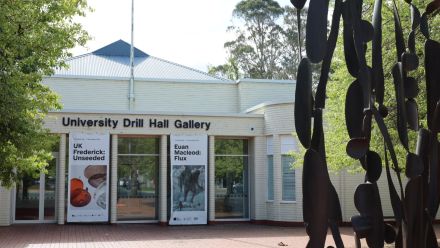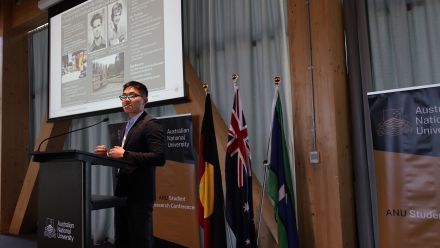Katherine Quinn (LLB, BA ’13)
Katherine is Director of Partnerships for the ºÚÁÏÌìÌÃWomen's Alumni Network.
A Canberra native, she currently works in international policy at the Department of Defence. Her role involves managing defence relationships between Australia and other countries.
Her career has had many highlights so far, including working for Judge Warwick Neville in the Federal Circuit Court of Australia for several years. "It was a fantastic experience and in many ways the making of me, in a professional sense", said Katherine.
She also undertook an internship with the United Nations High Commissioner for Refugees, which gave her a close understanding of the unique and important role of multilateral institutions.
Katherine says choosing to study at ºÚÁÏÌìÌÃwas a no-brainer given her interest in working overseas in the UN and the NGO sector.
"It was fantastic to learn from academics at the top of their field who shared their expertise on a wide range of topics - from traditional to emerging areas such as animal law, disability law and human rights. It is one of the only Australian law schools to offer international law as part of its core curriculum, and international law is one of my great loves," said Katherine.
Reflecting on her time studying at ANU, Katherine says, "Someone told me at a young age that hard work will get you further than talent. I think that advice served me really well...ºÚÁÏÌìÌÃtaught me to work hard and exercise discipline, and that will take you further than having a great legal mind".
Katherine says women are underrepresented in the national security space, especially in the defence sector.
"It's well recognised that gender diversity improves the performance of every type of workplace," said Katherine. "This is particularly important for defence and diplomacy, with studies showing that women's participation in peace processes ensures a more resilient, longer-lasting peace, and having female soldiers present in conflict or disaster situations enables connections with female civilians, which might not be possible, or culturally appropriate, between males and females.
"It's really important we continue to strive for representation of women in the national security space by appointing women to senior positions, ensuring flexible working arrangements for parents -- both mothers and fathers -- and insisting on female representation on boards, committees and academic panels."


